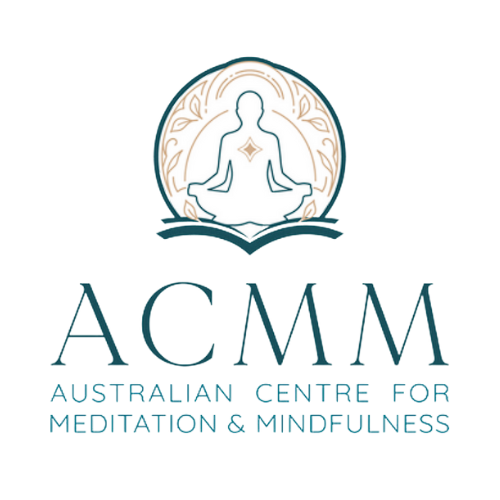Becoming a meditation and mindfulness teacher is about more than guiding practices; it’s about embodying the principles of mindfulness and creating a safe, supportive space for others. Here are six essential qualities that make an effective and compassionate meditation and mindfulness teacher.
1. Connection and Presence
A great meditation teacher can connect deeply with their students and be fully present during every interaction. Presence is about truly being with your clients and creating a safe, non-judgmental space where students feel seen and heard.
Why it matters:
Connection builds trust and fosters an environment where students can explore their inner worlds without fear. Presence allows you to respond authentically to the needs of the group or client, adapting your guidance as needed.
How to cultivate it:
Regular mindfulness practice helps you stay grounded and present. Actively listening to your students and practicing empathy can further strengthen your ability to connect meaningfully.
2. A Strong Personal Meditation and Mindfulness Practice
Your teaching will only be as strong as your personal practice. A consistent meditation routine is the foundation of your credibility and ability to guide others.
Why it matters:
Your personal practice deepens your understanding of mindfulness and meditation, allowing you to share authentic insights from your own experience. It also ensures that you’re embodying the principles you teach.
How to cultivate it:
Commit to a regular practice schedule, explore a variety of meditation techniques, and reflect on how your practice influences your daily life.

3. Good Facilitation Skills of a Meditation and Mindfulness Teacher
Effective facilitation goes beyond guiding meditations; it includes the ability to listen deeply, reflect on what you hear, and offer gentle guidance.
Why it matters:
Meditation classes often involve vulnerable moments, and a good facilitator knows how to hold space with compassion and skill. Being able to listen and respond mindfully ensures that your students feel supported.
How to cultivate it:
Practice active listening, develop emotional intelligence, and refine your ability to offer feedback and advice in a way that respects each student’s journey.
4. High-Quality Teacher Training
Proper training ensures you have the skills, knowledge, and confidence to teach safely and effectively. It equips you to use appropriate and trauma-sensitive language, structure meditations thoughtfully, and can teach a variety of techniques that meet the group’s needs.
Why it matters:
Good training helps you create inclusive, supportive environments where students can feel safe. It also connects you with professional networks, registration opportunities, and insurance to support your teaching career.
How to cultivate it:
Invest in a comprehensive meditation teacher training program that prioritizes trauma sensitivity, practical teaching techniques, and ongoing mentorship.
5. Mentoring Support for Unexpected Challenges
Having a mentor during your meditation teacher training provides invaluable support as you navigate the journey to becoming a teacher. Mentors offer guidance through personal challenges, help address unexpected hurdles, and provide a sounding board for growth and reflection. Even experienced teachers encounter moments of uncertainty, and a mentor acts as a safety net, ensuring you feel supported and confident as you develop your skills and deepen your practice.
Why it matters:
Mentorship offers guidance, reassurance, and solutions when you encounter difficult situations. It helps you grow as a teacher and ensures that your students’ needs are met with care and professionalism.
How to cultivate it:
Seek out a training program that includes mentorship opportunities, and don’t hesitate to reach out to peers or experienced teachers for advice.
6. Continuous Growth and Learning
Mindfulness is a lifelong journey, and the best teachers are those who remain open to learning—from their successes, challenges, and the world around them.
Why it matters:
A growth mindset allows you to adapt and improve your teaching over time. Emotional honesty and self-awareness also inspire trust and authenticity in your students.
How to cultivate it:
Stay curious and open to feedback. Attend workshops, engage in self-reflection, and treat every experience as an opportunity to learn and grow.
At the Australian Centre for Meditation and Mindfulness, we’re committed to supporting aspiring teachers in developing these essential qualities. Our certified meditation and mindfulness teacher training is designed to help you cultivate presence, deepen your personal practice, and refine your facilitation skills.
We provide comprehensive, trauma-sensitive training that equips you to guide meditations effectively and safely while offering access to mentorship for navigating unexpected challenges. Our program also fosters continuous growth and learning, encouraging you to embody mindfulness both personally and professionally.
By joining our training, you’ll gain the skills, knowledge, and confidence needed to become an authentic and compassionate teacher, ready to support others on their mindfulness journey.
At ACMM, you will discover a world of online and accredited meditation and mindfulness teacher training. We offer Certificate, Advanced Certificate, and Diploma Training Options, with optional Business Development Support alongside and after your training.
Find out if our courses are the right fit for you. Book a Zoom Discovery Call with us today!





